


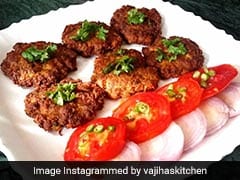
Fusion does not necessarily have to be confusion. While it is fashionable to look down upon it these days, fact is that almost every food tradition in the world that we regard as "authentic" can be regarded as an example of fusion cooking
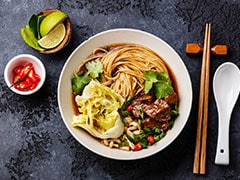
In Hiroshima, the city that the world remembers for mankind's greatest tragedy, one surprise discovery is that of a thriving nightlife.
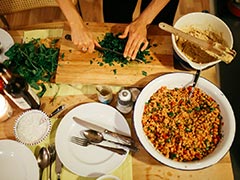
Brand India is hardly alone in aligning itself with the mishmash. If there was a united nations of khichdis, many countries would be similarly represented by their one-pot rice dishes.
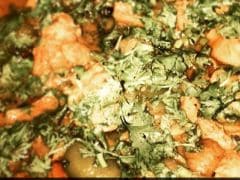
One of the most common dishes from the subcontinent, the Do Pyaaza is remarkably difficult to dig into. Of course, its flavours are irresistible and you dont need to challenge your palate at all to immediately appreciate the caramelised sweetness of onions bunged in with ...
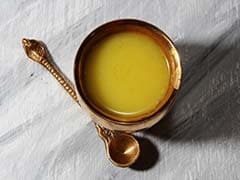
Have you ever wondered why the Navratri Navami Halwa is only cooked in ghee? Or why pooris were traditionally fried in "pure ghee" to be fit as festive offerings?
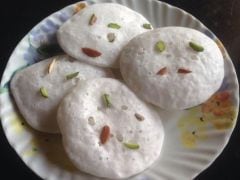
Batashas are autumn confections, when sugar cane in large parts of the country is harvested and a period of religious festivities begins.
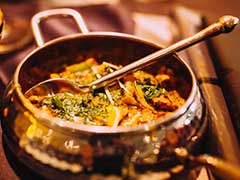
The food in all the regions of Uttarakhand (Uttaranchal) remains simple, basic fare. Whatever is locally grown is consumed, which are now being deemed as superfoods.
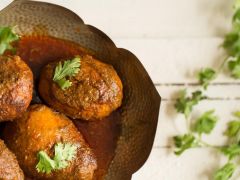
The khansamas were a product of a feudal India, of the British Raj, and while their legacy lived on for many decades post-Independence, and post the abolition of the privy purses which dealt a death blow to feudalism in many ways, in the post Liberalisation ...

Mumbai seems to be on a roll this year with the sheer number of interesting new restaurant openings. Here are 7 new dishes that should be on your wishlist.
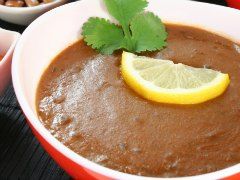
Masoor Dal could be made into a party dish for sure, a break from the routine arhar dal that we eat or the moong dal. Here's how.
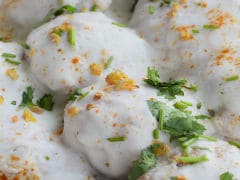
The dahi phulki is one of these neglected iftar dishes that used to be present on all dining tables as a sensible and light evening food for those fasting during Ramzan.
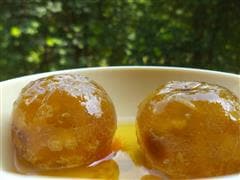
Unlike the mango murraba, popular in Gujarat, in UP, it is Amla ke Murraba that used to be quite popular at least within a social mileu engendered by the fabled composite Ganga-Jamuni tehzeeb or culture of the region.
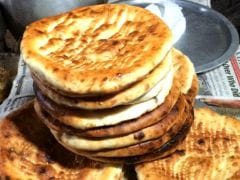
Sheermal, a slightly sweet and soft bread, is the perfect contrast to spiced but delicate stews of Awadh. It is made with maida, saffron, milk, ghee with a pinch of baking soda.
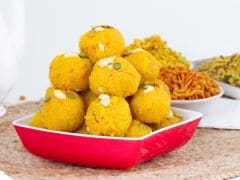
The way we use lentils in India is unique. Dals are an intrinsic part of the meal for vegetarians in almost all parts of the country, but they are also one of the most versatile ingredients of the Indian kitchen.
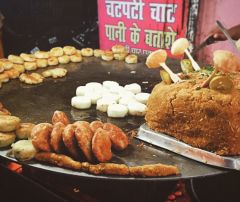
What is called matar everywhere else, white dried peas, is for some reason dubbed matara in Lucknow. Matara chaat is concocted out of the peas and is far from boring.
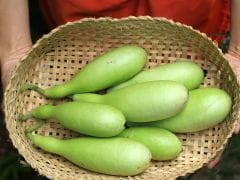
Before the advent of the tasteless cauliflowers, broccoli and fancier veggies, it was the gourds that ruled summer.
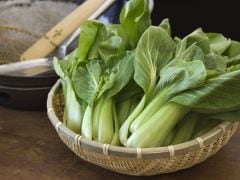
Of the ingredients to stir fryvirtually anything can be, including all the lovely local greens available in different parts of the country.
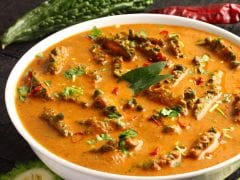
Since bitter foods are thought of as cleansing and important to boosting metabolism in many regional food traditions, they are mandatorily included in traditional meals.
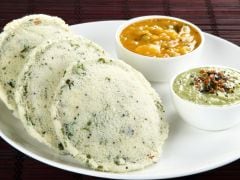
Fermented food products, of course, go far beyond these faddish "rediscoveries". Nutritionists now agree that the bacteria in it improve gut activity.
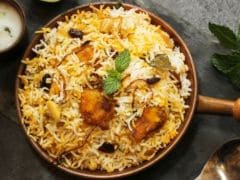
We taste food not just on our palate but through all other senses. And smell is as important to tasting food as sight or touch.

Anoothi Vishal is the author of Mrs LC's Table. She is also a columnist and food writer, specialising in cuisine history, culinary links between communities and regions, and the business of restaurants.
She writes for the Economic Times, NDTV Food, Business World and other leisure and business publications. Her blog amoveablefeast.in is widely read by the fooderati in the country, and appreciated for its candid views and insightful, detailed writing.
Anoothi is among the few food-writers in the country who has also been on the other side of a restaurant kitchen. As founder of The Great Delhi Pop-UP, she cooks for and curates pop-up dinners for select audiences in Delhi, Mumbai and other cities. The idea is to expose audiences to the diversity of Indian cuisines, defined not just by regions but by the unique cooking practices of each community.
A non-stop traveller, the idea for the pop-up dinners occurred after she experienced some off-the-mainstream, experimental restaurants driven by non-professional chefs in global dining hubs such as Melbourne, London, and Toronto. The result was the first Great Delhi Pop-up in the home of writer friends, where a motley bunch of people came together, emptied out the house of its furniture, put some tables and chairs and had a feast, with Anoothi cooking up her family's Kayastha khana and serving it with Champagne. Since then, the pop-up has grown and travelled.
Anoothi also cooks at hotels and restaurants, along with her father Rajeev and aunt Minoo, both exceptional home cooks, the food of her family and community. "Kayastha Khatirdari", her food festival, has travelled across India, showcasing the unique syncretic heritage of the community to diners at various hotel chains, including ITC hotels in Chennai, Bangalore and Delhi, The Park, Claridges, Radisson and others.
Thanks to her family's strong tradition, food has always been a preoccupation with Anoothi. She learnt to roll out perfectly round rotis by the time she was 10 and to experiment in the kitchen, encouraged by Barima, her grandmother, who narrated her recipes and anecdotes about all the great family cooks. At 11, she got gifted an oven by her parents for her birthday, and for several years after, baked imperfect cakes and desserts for family and friends.
But the interest in cooking was always secondary to the passion for writing. An adolescent poet and amateur contributor to newspapers in Lucknow, where she grew up, Anoothi naturally gravitated towards studying literature at Lady Shri Ram, New Delhi, and then towards print journalism, where she wanted to write on art and culture.
As a cub reporter at the Indian Express, however, she got sent to one of her first assignments-a food review of a newly opened Awadhi restaurant in Delhi. She came back and wrote a piece and immediately bagged the job of being the Indian Express's restaurant critic and food columnist in 2000, at a time, when few restaurants existed outside the hotels - and no one wanted the job of writing on a subject with so little to write about!
As the country's youngest restaurant reviewer and food columnist at that time, Anoothi's views in "Foodphile" garnered much attention for being as honest as contentious. Since then, she has written on diverse subjects including society, business, travel, fashion, art and culture for the India Today group, the Business Standard, where she was features editor, and the Times of India group of publications. But her best writing -- and experiments-remains reserved for food, its creation and consumption.